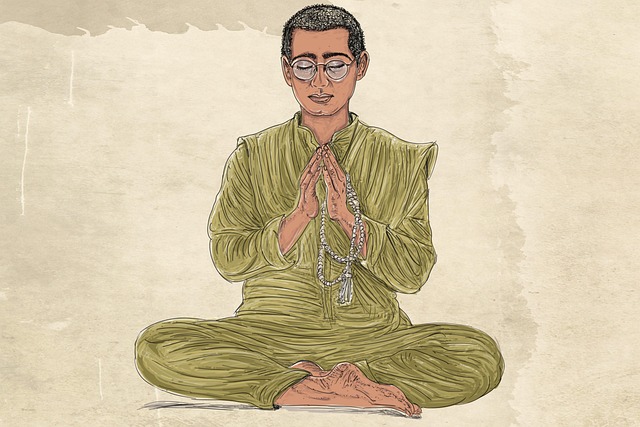Oregon's Child Protective Services (CPS) Law creates a robust legal shield for vulnerable children, detailing reporting, investigation, and case management procedures. Key stakeholders collaborate to provide comprehensive safety nets, preserving families while prioritizing child welfare. Legal advocates play a crucial role, protecting minors' rights, guiding families through CPS processes, and advocating for their best interests. Understanding complex CPS laws is essential for effective representation, balancing child and parent rights, and ensuring due process. Strategic methods, continuous professional development, and collaborative relationships empower advocates to advocate for vulnerable youth within Oregon's CPS framework.
In Oregon, child protective services (CPS) play a pivotal role in ensuring the safety and well-being of vulnerable youth. This article delves into the intricate world of Oregon’s CPS laws, highlighting their impact on both children and parents. We explore the crucial role legal advocates play in navigating these complexities, safeguarding rights, and implementing effective strategies for representation. Through real-world examples, we demonstrate how advocacy drives positive outcomes for Oregon’s most vulnerable youth.
- Oregon's Child Protective Services Law: An Overview
- Role of Legal Advocates in Child Welfare Cases
- Navigating Complexities: CPS Laws and Their Impact
- Rights of Children and Parents in Oregon CPS Cases
- Strategies for Effective Legal Representation
- Supporting Vulnerable Youth: Advocacy in Action
Oregon's Child Protective Services Law: An Overview

In Oregon, the Child Protective Services (CPS) Law is a comprehensive legal framework designed to protect and nurture vulnerable children within the state. This law grants authority to the Department of Human Services (DHS), which oversees CPS, to intervene when a child’s safety and well-being are at risk due to abuse, neglect, or other harmful situations. The CPS Law outlines a series of procedures for reporting, investigation, and case management, ensuring that children receive timely interventions and support.
The law emphasizes the importance of family preservation and rehabilitation, aiming to keep families together whenever possible while prioritizing the child’s best interest. It involves various stakeholders, including social workers, courts, and community resources, to create a safety net for affected children. By implementing these protective measures, Oregon strives to foster a secure environment and positively impact the lives of at-risk youth.
Role of Legal Advocates in Child Welfare Cases

Legal advocates play a pivotal role in Oregon’s child welfare system, supporting and guiding children and families involved in child protective services law cases. Their primary duty is to ensure that the rights of vulnerable kids are protected while navigating complex legal procedures. These advocates act as a bridge between the child, their family, and the court system, advocating for the best interests of the minor.
They assist in various ways, from attending court hearings and communicating with caseworkers to providing emotional support and educating families about their legal rights and options. By offering this comprehensive assistance, legal advocates aim to strengthen the overall child welfare process, foster positive outcomes, and help children find safety and stability within their households or alternative care settings.
Navigating Complexities: CPS Laws and Their Impact

Navigating the complexities of child protective services (CPS) laws is a critical aspect of advocating for welfare cases in Oregon. These laws, designed to protect vulnerable children and ensure their safety, come with intricate nuances that demand meticulous understanding. Every detail matters when representing clients involved in CPS proceedings, as even seemingly minor errors can significantly impact outcomes.
The CPS legal framework encompasses various regulations and guidelines that govern investigations, interventions, and case management. Advocates must stay abreast of these evolving laws to provide effective representation. This includes comprehending the criteria for removing children from their homes, the rights of parents during investigations, and the processes for fostering stability while protecting at-risk youth. By mastering these complexities, legal advocates can ensure that the interests of both the child and family are protected within the legal system.
Rights of Children and Parents in Oregon CPS Cases

In Oregon, both children and parents have specific rights during Child Protective Services (CPS) cases. Children have the right to be safe and have their best interests considered, while parents are entitled to legal counsel, fair hearings, and privacy regarding their family matters. The child protective services law aims to balance these rights, ensuring that all parties involved receive due process.
Parents must be informed of the allegations against them, given an opportunity to respond, and allowed to participate actively in the case. They can challenge evidence, present their version of events, and seek legal representation to protect their parental rights. Similarly, children have the right to be heard and have their wishes considered, especially regarding placement and permanency decisions.
Strategies for Effective Legal Representation

To provide effective legal representation in Oregon’s child protective services law cases, advocates must employ strategic approaches that cater to the unique needs of vulnerable children and families. One key strategy is staying abreast of evolving legislation and case law, ensuring that legal arguments are grounded in the most recent interpretations of the law. This involves continuous professional development and a keen eye for detail.
Additionally, building strong relationships with clients, foster care providers, and other stakeholders is essential. Effective communication, empathy, and a child-centered approach help to gain trust and ensure that all parties feel heard and respected. By fostering collaborative environments, legal advocates can navigate complex cases more effectively, ultimately advocating for the best interests of the child within the legal framework of Oregon’s child protective services law.
Supporting Vulnerable Youth: Advocacy in Action

In Oregon, the role of legal advocates is pivotal in supporting vulnerable youth within child protective services law. These advocates ensure that the rights of children involved in welfare cases are protected and that they receive a fair representation. By advocating on their behalf, legal professionals can help navigate complex legal systems, ensuring that decisions are made in the best interest of the child. This support is crucial as it provides stability and a voice for those who may otherwise be silenced by the challenges they face.
Through proactive legal action, advocates work to prevent further harm and foster a safe environment. They collaborate with various agencies, including social services and law enforcement, to ensure comprehensive care. By staying vigilant and advocating tirelessly, these legal representatives play a game-changing role in enhancing the lives of vulnerable youth, offering them a chance at a brighter future.
